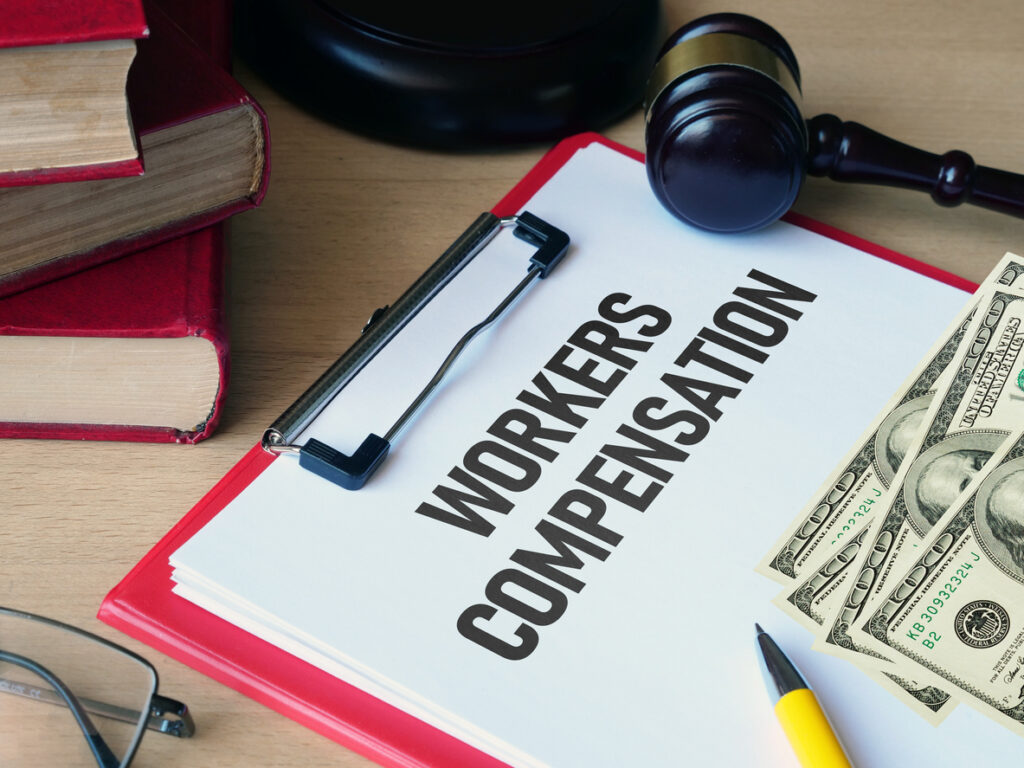Receiving a denial letter for a workers’ compensation claim can be confusing, frustrating, and financially devastating, especially if medical bills and lost wages are piling up. A Denied Workers Compensation Claims Attorney provides much-needed clarity by analyzing denial reasons, which often stem from missed deadlines, incomplete documentation, or disputes regarding the work-related nature of injuries. State laws, specifically those outlined in government standards like U.S. Department of Labor: Workers’ Compensation, rigorously define valid claims, demanding exacting compliance and robust medical evidence. This initial assessment determines the feasibility of an appeal and pinpoints legal shortcomings or factual gaps that must be addressed before any next step.
When to Contact a Denied Workers Compensation Claims Attorney Immediately After a Denial
Navigating the aftermath of a denied workers compensation claim demands prompt, knowledgeable action. Consulting with a Denied Workers Compensation Claims Attorney early ensures case files, medical records, and timelines are preserved and protected according to statutory requirements. A skilled attorney helps decipher the denial letter, clarifies deadlines for appeals, and organizes documents strategically for the appeals process. Engaging legal support immediately after denial also helps mitigate common mistakes made by unrepresented applicants, such as insufficient evidence or procedural missteps that can further jeopardize the claim.
The Legal Process Following a Denied Workers Compensation Claim
A denial does not signify the end of the road; rather, it marks the beginning of a multi-tiered legal process that requires attention to detail. Working with a Denied Workers Compensation Claims Attorney, the initial steps involve scrutinizing the insurer’s written justification for denial and correlating those reasons with medical evidence, workplace incident reports, and witness testimony. Attorneys know precisely where claims break down and employ their training to address inaccuracies. State workers’ compensation commissions and appeal boards operate under strict deadlines — failure to act swiftly and precisely can result in permanent loss of benefits, making the attorney’s role indispensable.
Gathering Evidence and Preparing for the Appeal
Proper evidence gathering underpins a successful workers’ compensation appeal. A Denied Workers Compensation Claims Attorney meticulously reviews medical reports, employer statements, and relevant workplace safety records. Appeals are often lost due to missing or incomplete documents, and attorneys ensure every requirement matches procedural standards. This systematic approach includes contacting healthcare providers for supplementary records, gathering witness accounts that clarify incident circumstances, and organizing the legal brief to emphasize statutory compliance. A legal representative also knows how to challenge insurer claims about pre-existing conditions or causation.
Filing the Appeal: Key Documents and Deadlines
Each state sets rigid requirements for filing appeals, ranging from formal petitions to supporting letters from physicians. A Denied Workers Compensation Claims Attorney guarantees every step complies with state-mandated protocols. Appeal forms must clearly articulate grounds for contesting the denial, supported by robust documentation and case law references where applicable. Missing the appeal deadline can forfeit the claimant’s rights, so attorneys meticulously track calendars and file documents electronically or in person according to administrative rules. Their attention to detail safeguards the claimant from procedural pitfalls endemic to workers’ compensation appeals.
Administrative Hearings and How an Attorney Prepares the Case
After filing the appeal, most jurisdictions offer an administrative hearing before a judge or appeals panel. The process can be daunting for laypersons, as hearings require precise presentation of facts, evidence, and expert testimony. A Denied Workers Compensation Claims Attorney crafts legal arguments, organizes exhibits, and prepares witnesses to deliver compelling testimony. Attorneys also cross-examine opposing witnesses and ensure the record captures all relevant facts for appellate review if necessary. The way the case is presented during this stage can decisively influence the outcome.
Using Legal Precedent to Strengthen Appeals
Legal precedent carries significant weight in workers’ compensation appeals. By referencing prior rulings and judicial standards, a Denied Workers Compensation Claims Attorney builds persuasive arguments grounded in established law. Courts generally uphold decisions consistent with statutory intent — attorneys leverage decisions from higher courts and administrative panels to bolster the appeal. This approach connects the current claim to broader legal principles, showing the claimant’s situation fits within the boundaries of legitimate workplace injury compensation.
Overcoming Difficulties Unique to Denied Workers Compensation Claims
Denied claims often involve complex medical or factual disputes, minority language barriers, or employer resistance that can hinder recovery. A Denied Workers Compensation Claims Attorney deals with these obstacles by seeking medical experts for independent evaluations, obtaining translation services for non-English documents, and negotiating with employers to facilitate the evidence collection process. They apply judicial standards such as those codified in state labor codes and government workers’ compensation guidelines, ensuring every procedural safeguard advances the appeal.
Tactics for Success: Strategizing Your Appeal With a Denied Workers Compensation Claims Attorney
Succeeding in an appeal requires more than gathering evidence; it demands strategy. The best results arise when a Denied Workers Compensation Claims Attorney tailors the appeal to address specific denial reasons, such as insufficient causation, gaps in medical treatment records, or disputed employment status. Attorneys prioritize arguments that align with statutory definitions of workplace injury, anticipate opposing counsel’s challenges, and structure appeals memoranda to draw attention to overlooked facts. This tactical preparation boosts chances for reversal at both administrative and judicial stages.
Common Reasons Appeals Succeed When Guided by Legal Representation
Appeals led by a Denied Workers Compensation Claims Attorney commonly succeed for key reasons. First, attorneys ensure compliance with all filing requirements, which alone eliminates many technical denials. Second, legal representation counters insurer defenses, such as alleging non-work-related injuries or pre-existing conditions, by presenting credible, timely medical evidence and witness testimony. Third, an attorney’s awareness of the appeals board’s criteria and history of decision-making ensures the appeal arguments are targeted for success.

The Role of Medical Documentation in Appeals
Medical documentation forms the backbone of every workers’ compensation appeal. A Denied Workers Compensation Claims Attorney closely collaborates with treating physicians to detail the nature, cause, and extent of injury using terminology that matches statutory language. They know what medical records persuade administrative judges: comprehensive physician statements, diagnostic reports, and ongoing rehabilitation records provide compelling support. Legal counsel also contests unreliable or incomplete insurer medical evaluations, demanding further testing or second opinions as necessary through formal legal channels.
Navigating Post-Appeal Options if the Claim Remains Denied
Appeals do not always result in a favorable ruling; if benefits are still denied, the case may escalate to higher administrative bodies or civil courts. Working with a Denied Workers Compensation Claims Attorney at this stage becomes even more critical to preserve appellate rights. Attorneys ensure records are properly prepared for further review, file petitions for reconsideration, and initiate civil litigation when administrative remedies reach their limits. Government procedures, as detailed on authoritative sources like U.S. Department of Labor: Workers’ Compensation, allow multiple review stages for claimants prepared to persist.
Key Traits to Seek in a Denied Workers Compensation Claims Attorney for Successful Appeals
Securing representation from a Denied Workers Compensation Claims Attorney means partnering with someone who has comprehensive understanding of workers’ compensation law, government protocols, and the anatomy of a successful appeal. Prioritizing attorneys with a track record of appeals-centered work in your state is vital. Their expertise in handling denied claims, appeal preparation, and administrative hearings ensure the process follows every rule, fact, and judicial standard that governs workers’ compensation awards.

Why Legal Representation Maximizes Your Likelihood of Receiving Workers’ Compensation Benefits
Legal representation can radically enhance chances of award reversals, monetary recovery, and medical coverage. A Denied Workers Compensation Claims Attorney manages every aspect of the appeals process: from evidence gathering and case-building to oral argument and written submissions. They advocate for claimants before administrative boards, negotiate settlements when appropriate, and ensure every procedural safeguard is enforced in favor of benefit approval. Their focused advocacy maximizes the benefit of statutory protections designed to help injured workers recover.
Trusted Help for Denied Claims
For anyone facing a denied claim, consulting a Denied Workers Compensation Claims Attorney provides immediate access to knowledgeable guidance, strategic appeal preparation, and improved chances of benefit approval.

The Final Appeal Step: Judicial Review and Its Challenges
If administrative appeals fail, judicial review allows claimants to seek court intervention. A Denied Workers Compensation Claims Attorney files legal briefs, submits trial exhibits, and supports claimants through hearings, cross-examinations, and post-ruling petitions. Judicial review applies strict standards to administrative decisions, making the attorney’s ability to identify legal error, procedural missteps, or overlooked evidence critical for court reversal. This final recourse underscores the importance of legal support throughout the compensation journey.
Conclusion: Persistence and Preparation Are Essential for Reversing Denial
The challenges of a denied workers compensation claim require technical skill, timely action, and detailed legal strategy. A Denied Workers Compensation Claims Attorney provides these advantages, leveraging judicial standards, government protocols, and targeted advocacy to navigate the appeals process. Whether the denial stems from documentation errors, medical disputes, or administrative technicalities, the right legal representation identifies weaknesses in the insurer’s case, builds robust appeal files, and presents persuasive arguments that maximize chances for benefit recovery.
